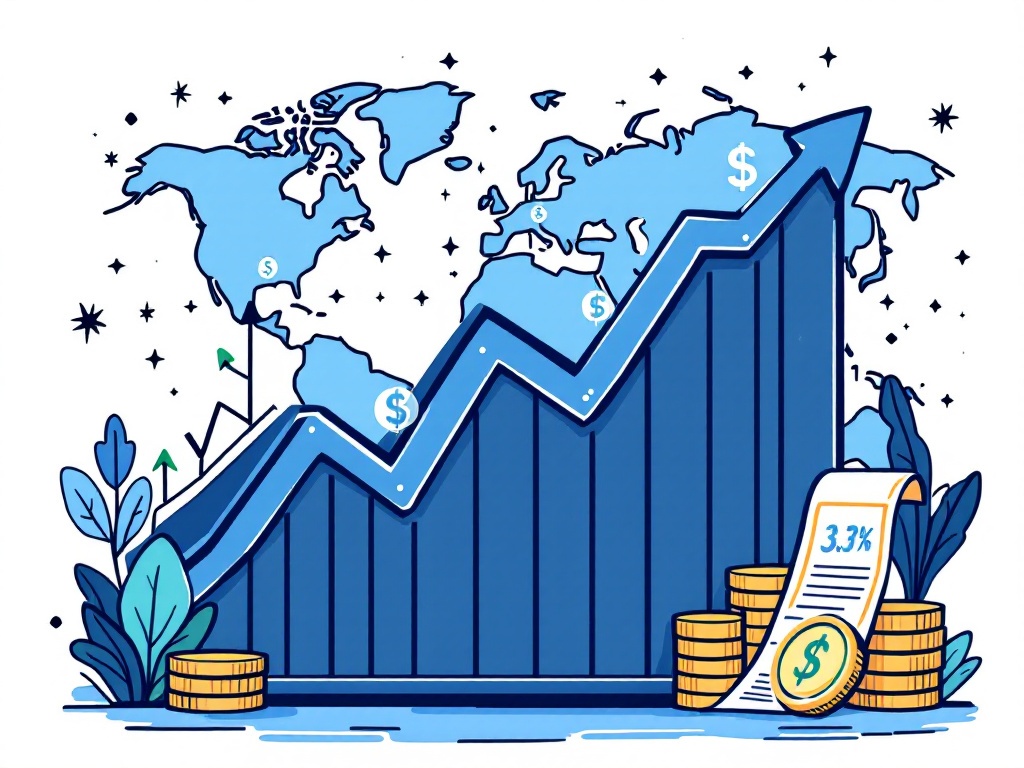IMF Report Highlights Global Growth Steady at 3.3% Amid Inflation Concerns

New York, Thursday, 30 January 2025.
The IMF projects global economic growth to remain at 3.3% for 2025-2026, with inflation challenges potentially impacting fiscal and financial stability. Regional disparities in growth paths highlight diverse economic trajectories.
Growth Projections and Regional Divergence
The International Monetary Fund’s latest World Economic Outlook Update reveals that global growth will hold steady at 3.3% for both 2025 and 2026, falling below the historical average of 3.7% observed from 2000 to 2019 [1]. This forecast reflects significant regional variations, with the United States showing stronger performance while other major economies face downward revisions [1]. The stability in the global growth projection masks underlying complexities in different regions, highlighting the increasing economic divergence between advanced and emerging economies [1].
Inflation Trajectory and Policy Challenges
Global inflation is expected to follow a downward trajectory, with projections indicating a decrease to 4.2% in 2025 and further reduction to 3.5% in 2026 [1]. Advanced economies are anticipated to reach their inflation targets more rapidly than emerging markets and developing economies [1]. However, the IMF warns that potential disruptions to the ongoing disinflation process could complicate monetary policy decisions, particularly affecting the planned transition to easing measures [1].
North American Economic Outlook
The regional economic landscape shows varying patterns of recovery and challenges. Canada’s outlook presents a more cautious picture, with growth projections being revised downward [7]. The Bank of Canada’s latest projections indicate reduced business investment expectations, with investment levels anticipated to be lower by 2.8 percentage points on average [7]. This contrasts with the United States’ more robust performance, which has contributed to maintaining the global growth forecast [1].
Policy Implications and Future Outlook
The IMF emphasizes the importance of balanced policy approaches in managing current economic challenges [1]. Key focus areas include maintaining the delicate balance between controlling inflation and supporting real economic activity, while simultaneously strengthening financial buffers [1]. The organization advocates for enhanced structural reforms and stronger multilateral cooperation to address medium-term growth prospects [1]. This comes as the IMF continues its role in promoting sustainable growth and prosperity across its 191 member countries [3].